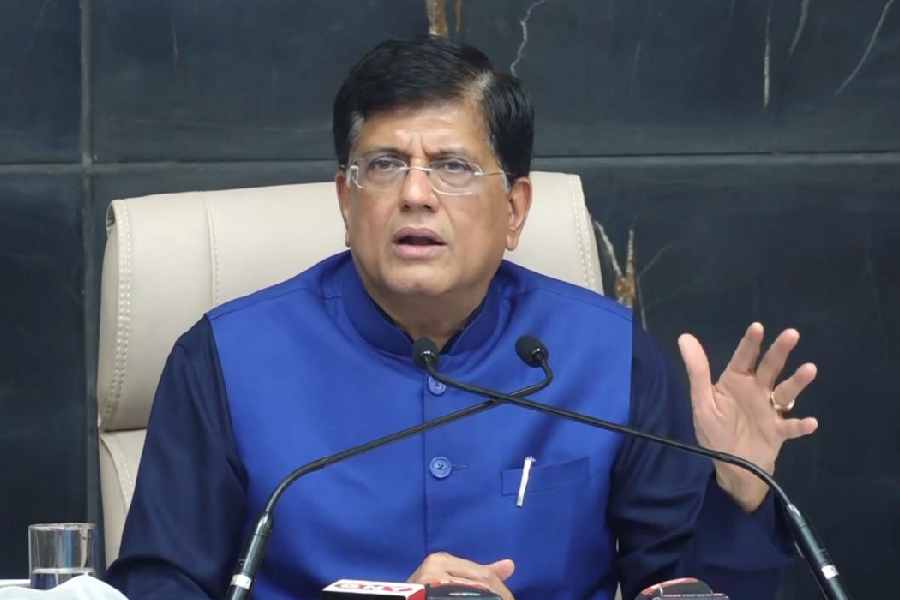India has no plans to lift its restrictions on FDI from China despite the Economic Survey's strong pitch on closer capital ties with Beijing that triggered a volley of suggestions from top government officials on how to approach the sticky issue.
Commerce minister Piyush Goyal on Tuesday thumbed down Chief Economic Adviser V. Anantha Nageswaran's nuanced arguments for Chinese FDI in the Survey and said the country is not re-thinking the issue of allowing Chinese investments into the country as he dismissed speculation the government might ease the restrictions on foreign direct investment (FDI).
Following clashes in the remote Himalayan border in 2020 between the two nuclear armed nations, India tightened scrutiny on investments from Chinese companies.
Finance minister Nirmala Sitharaman had backed Nageswaran's suggestion to allow more Chinese investment into the country.
Goyal, speaking to reporters, reiterated that the government has no plans to support Chinese FDI. "There is no rethinking at present to support Chinese investments in the country."
The minister said the Survey always speaks about new ideas and gives out their own thinking.
The ideas, he said, is not at all binding on the government and there is no thinking on supporting Chinese investments in the country.
Anantha Nageswaran had said in the Survey that India should consider attracting FDI from China to boost exports and address the growing trade deficit with Beijing.
"The investment that comes from China is checked, wherever we do not feel it is appropriate, it is stopped. Our policy remains the same, the chief economic advisor gave an advice," Goyal said later in the day in the Lok Sabha.
Commerce ministry data showed China has only invested $2.5 billion as FDI through official channels since 2001. By contrast, India received $990.97 billion in FDI from April 2000 to March 2024, with $667.41 billion coming in the last decade alone.
Despite minimal FDI from China, bilateral trade between the two nations has surged. China emerged as India's largest trading partner in 2023-24, with two-way commerce reaching $118.4 billion, surpassing the US.
Trade deficit with China, however, widened to
$85 billion in 2023-24 from $83.2 billion the previous year.
The Economic Survey highlighted India's widening trade gap with China and suggested that attracting Chinese capital could reduce import dependency. Nageswaran referenced the experience of East Asian economies, noting that FDI from China could boost Indian exports to the US.
The European Union (EU) has suggested that India can devise its own mechanism instead of paying the carbon tax to the European Union, Goyal said.











